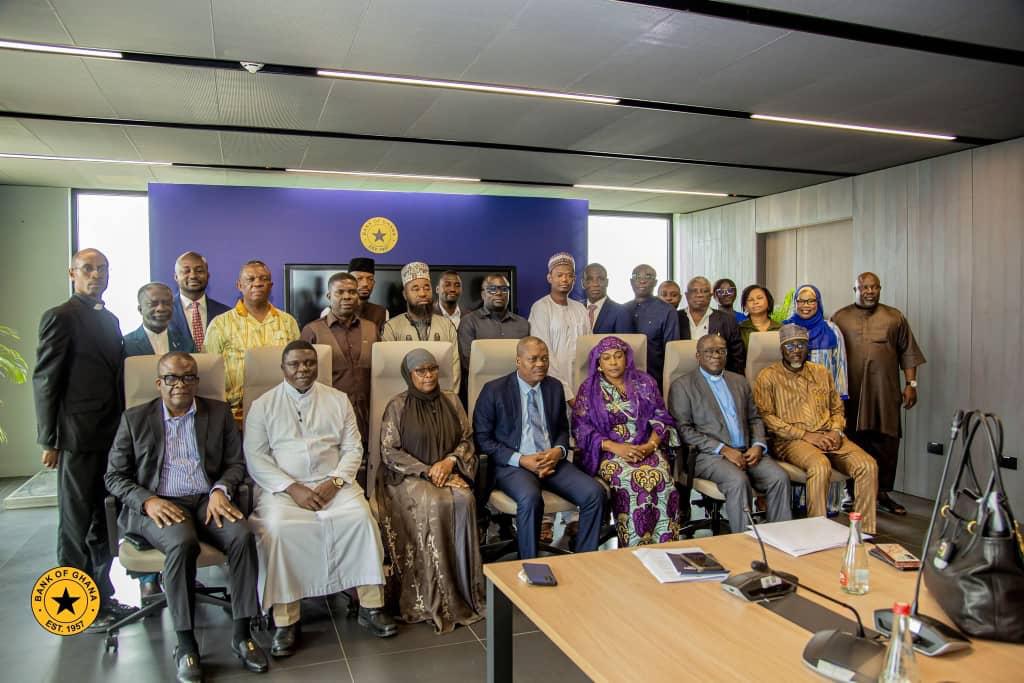
The Bank of Ghana is making some significant progress in the development of a framework for the establishment of a Non-Interest Banking and Finance (NIBF) framework for the country.
The Central Bank, to this end, on September 18 2025, engaged Christian and Muslim leaders as part of stakeholder consultations towards the development of an inclusive regulatory framework for the rollout in Ghana
An Advisor to the Bank of Ghana, Professor John Gatsi on behalf of the Governor, Dr. Johnson Asiama, engaged representatives of the Christian and Muslim leaders at the Bank Square.
What is Non-Interest Banking and Finance
According to scholars, Non–Interest banking and Finance is an alternative banking system that operates according to principles that differ from the conventional system of lending.
The system has gained popularity in recent times and it’s being embraced by individuals and institutions that seek to align their financial transactions with ethical and moral values.
Joy Business is learning that at the heart of the Non-Interest Banking and Finance is the concept of risk sharing. This is in contrast to conventional banking, where banks act as lenders and borrowers bear the risk. Non-interest banks operate as partners with their clients.
Additionally, the banks and their clients share the profit or loss of an investment, thus providing an incentive for responsible lending and borrowing.

BoG on Meeting
According to the Bank of Ghana, the meeting was part of the Bank’s ongoing stakeholder consultations towards the development of an inclusive regulatory framework for the rollout of NIBF in Ghana.
Discussions touched on international regulatory standards, governance structures, and the establishment of both NIBF windows within conventional banks and fully fledged NIBF institutions.
Prof. Gatsi emphasised that NIBF would enhance financial inclusion, broaden economic opportunities, and expand consumer choice—ensuring fairness and non-discrimination.
He added that “The Bank of Ghana remains committed to fostering a financial system that serves all Ghanaians”.
Leaders of both faith groups expressed appreciation to the Bank of Ghana for creating space for dialogue and collaboration on this important initiative.